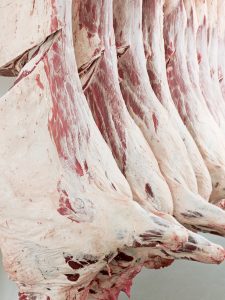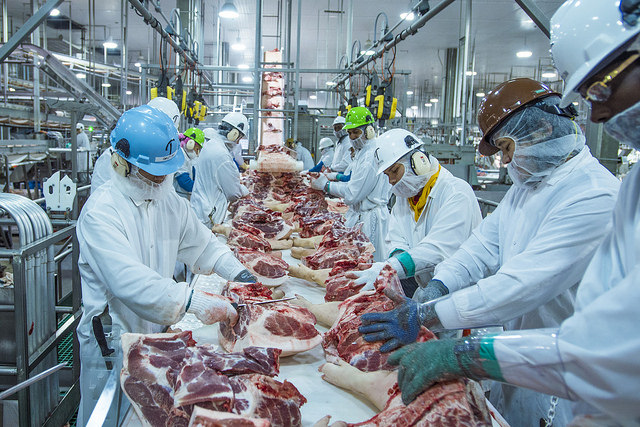



UK meat industry warns that its labor talent pool is turning "into a puddle"
The labor situation in the meat industry and other sectors has been in the spotlight this week with businesses getting increasingly concerned about the threat of empty supermarket shelves just as peak summer demand hits.But COVID-19 has merely exacerbated an already critical shortage of labor in the industry which poses a more structural and longer-term threat to British meat companies.

Nick Allen, CEO of The British Meat Processors’ Association explains: “The latest feedback we’re getting from the front line is that the shortage of skills and workers for permanent positions is reaching a critically high level. We’ve heard reports of plants having between 10% and 16% vacancies even before absenteeism due to COVID-19 is factored-in. On top of the underlying worker shortage, we’re also hearing from some members that between 5% and 10% of their workforce have been ‘pinged’ by the [health service] app* and asked to self-isolate.
“There’s a real air of despondency creeping through the industry. Every morning, management meetings in meat plants up and down the country now start with the questions: ‘who’s turned up to work? What skills are we missing today? and how can we quickly re-arrange our production to keep the plant running?’.
“Depending on which staff show up for work, different product lines will be affected. But, in general the shortage of workers affects products that require more labour to produce, and it’s these lines that are the first to be cut.”

Food supply chains are right on the edge of failing but to-date, BMPA and other industry representatives have still not managed to get any definitive guidance out of Government. In fact, as Sir Keir Starmer pointed out in Prime Minister’s Questions, the Government’s guidance on key worker exemptions from self-isolation is “changing hour by hour”.
The industry has been given contradictory statements over the last few days which provides no help to companies wanting to plan and manage production. Nick Allen added: “According to the latest verbal advice we’ve been given, we think that exemptions will be very selective and difficult to qualify for. At this stage we understand that companies may have to apply separately for an exemption for each individual worker. This would throw up an added wall of bureaucracy and be completely unsuited to managing a fast moving-production line that’s made up of people with multiple different, but equally vital skills.”
Mr Allen finished with this warning: “If the UK workforce situation deteriorates further, companies will be forced to start shutting down production lines all together. So, it’s for this reason that we’ve been calling on the Government for months to add butchers to the Shortage Occupation List, which would allow the industry to temporarily fill these growing vacancies with overseas workers until the current crisis has passed.”
*The UK Government unveiled a COVID-19 contact tracing app that is pinging thousands of workers and telling them to isolate.


